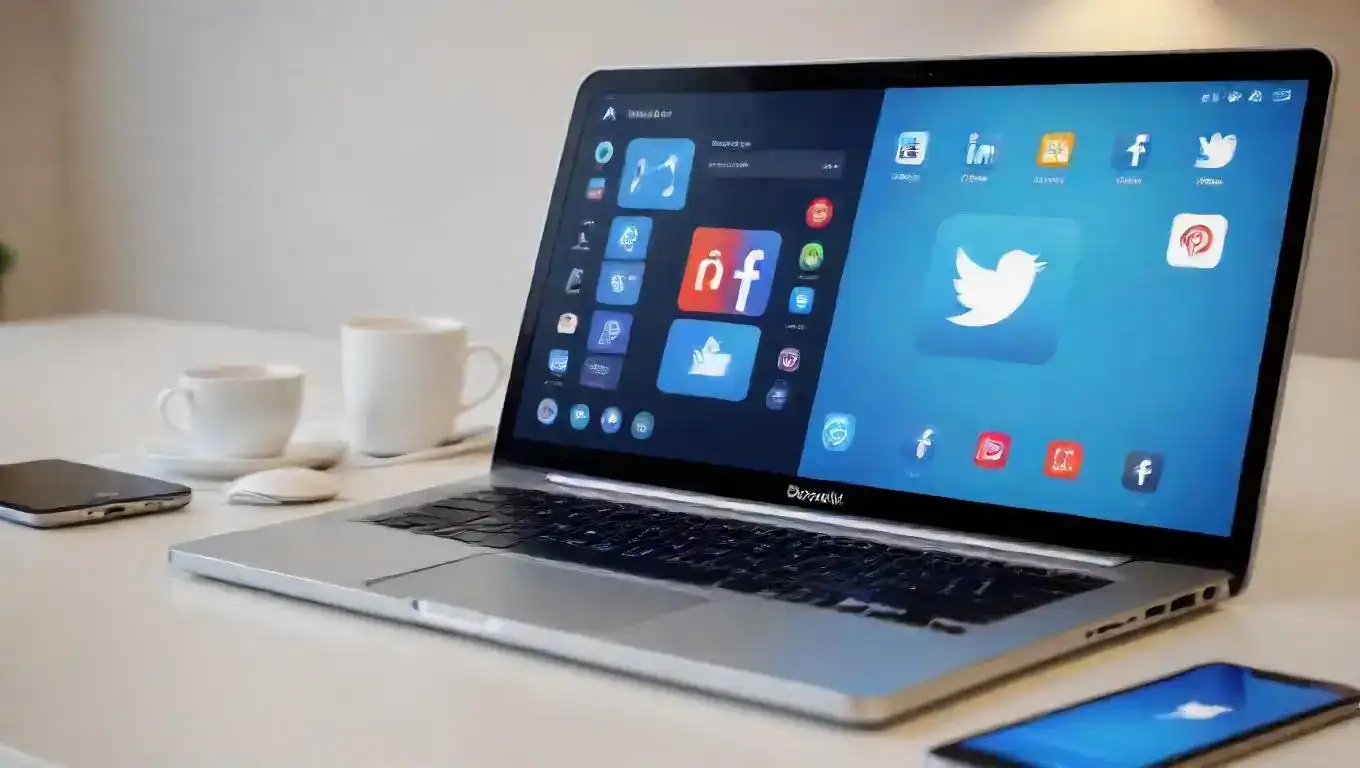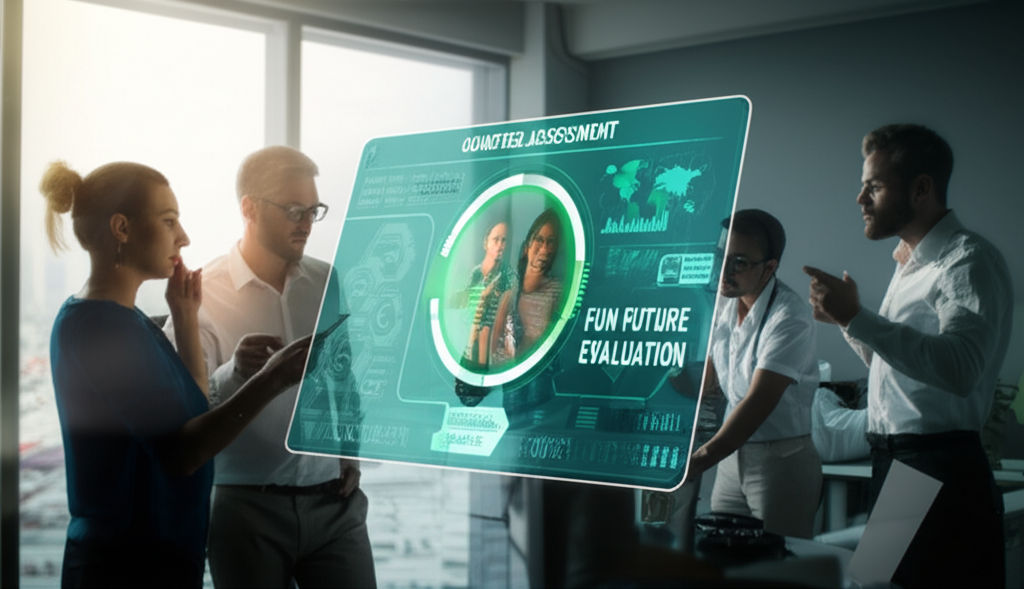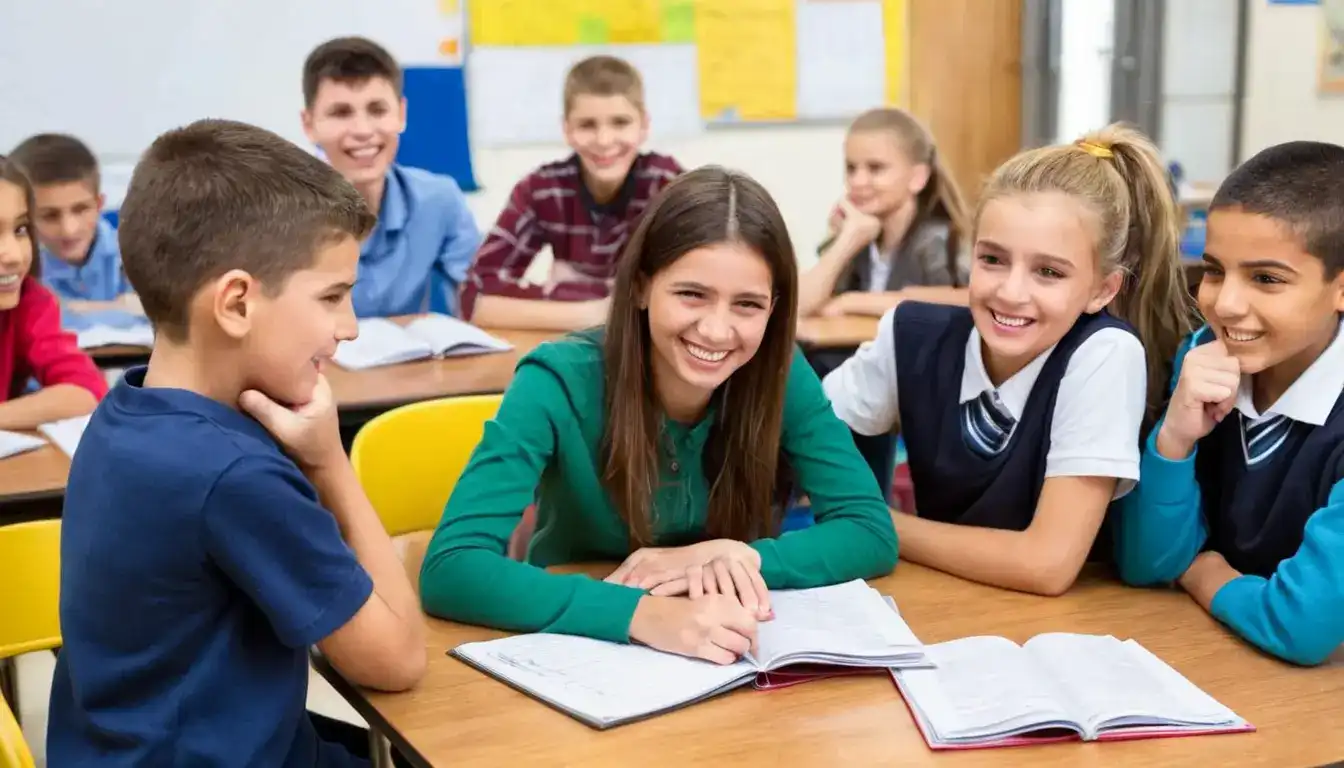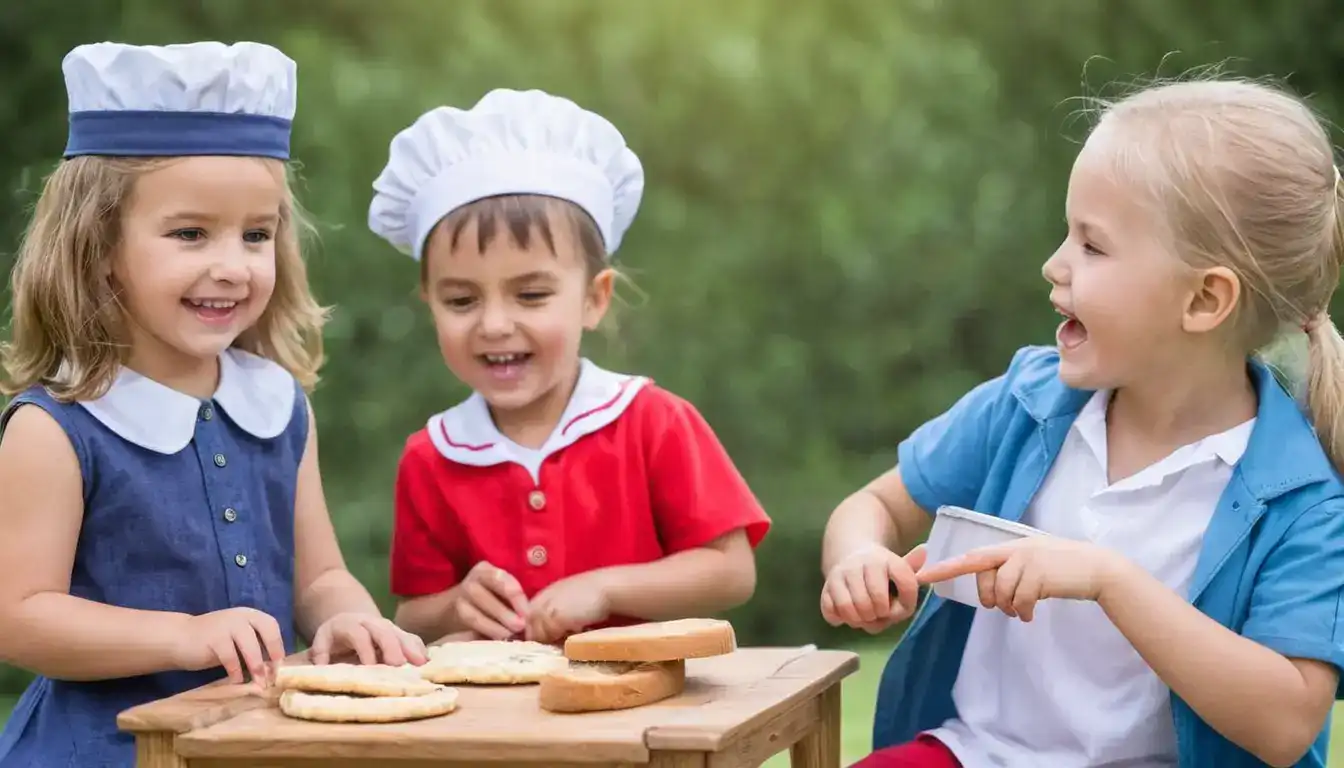Project-Based Learning: Real-World Skills
Emily Willis
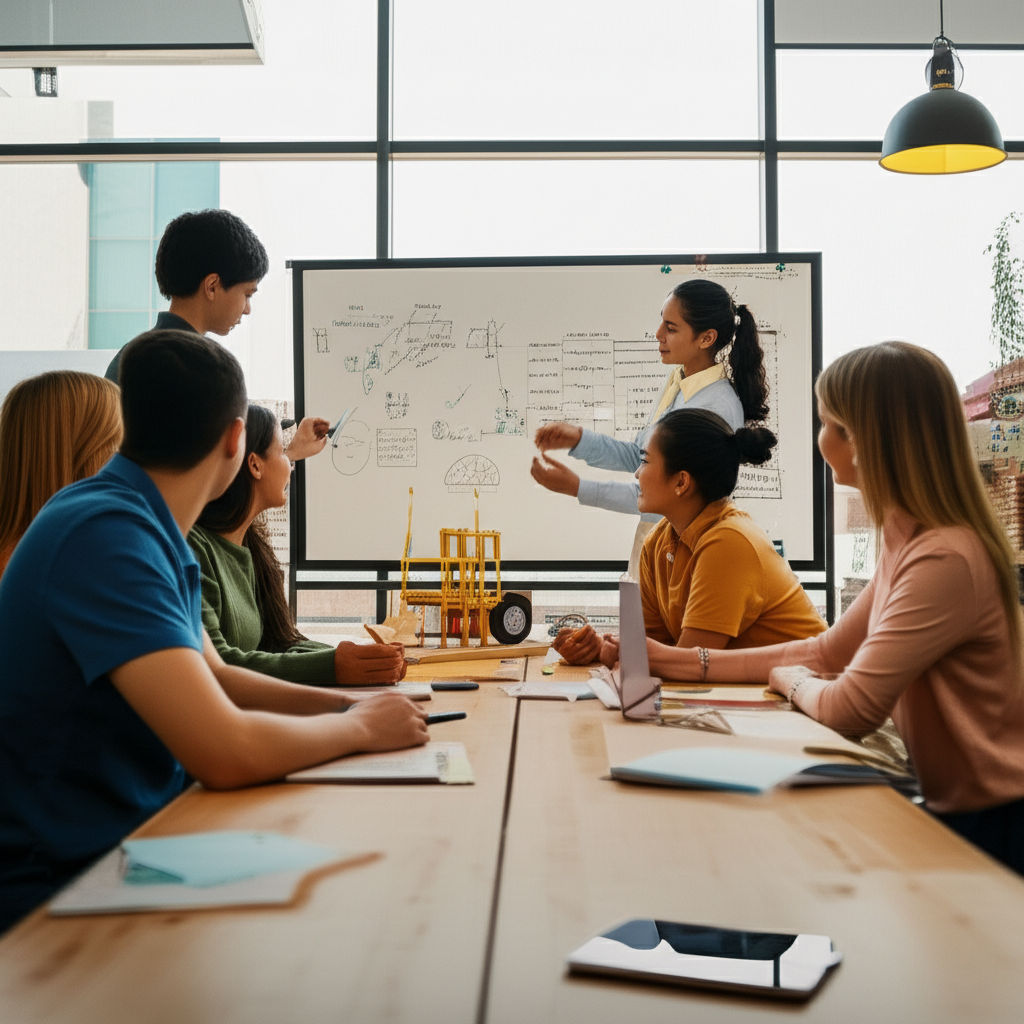
Photo: Project-Based Learning: Real-World Skills
Project-Based Learning: Building Real-World Skills for a Brighter Future
Remember school? For many of us, it involved sitting in rows, listening to lectures, taking notes, and then cramming for tests. While this traditional approach has its place, the world has changed dramatically. Today's challenges are complex, interconnected, and constantly evolving. To thrive, individuals need more than just memorized facts; they need a robust set of real-world skills. This is where Project-Based Learning (PBL) steps in, transforming education into an exciting, hands-on journey that prepares students for life, not just exams.
What Exactly is Project-Based Learning?
Think about how you learn best in your own life. Is it by reading a manual, or by actually doing something? For most people, it's the latter. Project-Based Learning (PBL) is an educational approach that embraces this idea. Instead of passively receiving information, students actively engage with real-world problems and challenges over an extended period. The "project" isn't just an add-on at the end of a unit; it's the very core of the learning process.
In a PBL environment, students don't just learn about a topic; they become investigators, creators, and problem-solvers. They dive deep into a complex question or issue, conduct research, collaborate with peers, and ultimately create a tangible product or presentation for a real audience. This active engagement makes learning more meaningful, relevant, and deeply embedded than traditional rote memorization. It's a student-centered method that fosters curiosity, critical thinking, and creativity.
Why Real-World Skills Matter More Than Ever
The modern workforce and society demand a different kind of readiness. Employers are increasingly looking for individuals who can think critically, solve complex problems, collaborate effectively, adapt to new situations, and communicate their ideas clearly. The World Economic Forum has even highlighted a growing gap between what students learn in school and the skills employers actually need.
Traditional education, with its focus on standardized tests and isolated subjects, often falls short in developing these crucial 21st-century skills. Life doesn't hand out multiple-choice questions; it presents open-ended challenges that require innovative thinking, teamwork, and resilience. This is precisely the gap that Project-Based Learning aims to bridge, equipping students with the competencies essential for success in a rapidly changing world.
The Core Real-World Skills PBL Nurtures
One of the most powerful aspects of Project-Based Learning is its ability to cultivate a wide array of vital real-world skills. Let's explore some of the key competencies that flourish in a PBL environment:
Critical Thinking and Problem-Solving
In a PBL setting, students aren't just memorizing answers; they're wrestling with authentic problems that often have no single "right" solution. This pushes them to analyze information, identify patterns, compare different ideas, and make informed decisions. They learn to break down big challenges into smaller, manageable steps and brainstorm multiple solutions.
For instance, a project might involve designing a sustainable energy solution for their community, requiring students to research various energy sources, evaluate their feasibility, and critically assess potential impacts. This active engagement with complex issues helps students develop a growth mindset, encouraging them to embrace challenges and persevere in finding creative solutions.
Collaboration and Teamwork
The modern world is rarely a solo endeavor. From workplaces to community initiatives, success often hinges on the ability to work effectively with others. Project-Based Learning inherently promotes collaboration and teamwork as students often work in groups to achieve a common goal.
Through these shared experiences, students learn to communicate effectively, listen to diverse perspectives, negotiate differences, and delegate responsibilities. They learn to leverage each other's strengths and appreciate the power of collective intelligence, simulating real-life work environments where teamwork is crucial.
Communication (Verbal, Written, and Presentation)
Being able to articulate ideas clearly and persuasively is a cornerstone of real-world skills. Project-Based Learning provides abundant opportunities for students to hone their communication skills in various forms.
Students regularly present their findings to peers, teachers, and even external audiences, developing confidence in public speaking and visual communication. They might write reports, create multimedia presentations, design awareness campaigns, or even produce podcasts to convey their message. This continuous practice enhances their ability to express themselves confidently and engage others effectively.
Creativity and Innovation
Project-Based Learning is a fertile ground for fostering creativity and innovation. When confronted with open-ended problems, students are encouraged to think outside the box, generate novel ideas, and devise innovative solutions.
Whether it's designing a new product, creating a community mural, or re-imagining a city for the future, PBL challenges students to apply divergent thinking (generating many ideas) and then convergent thinking (refining those ideas into the most effective solution). This process nurtures imagination, curiosity, and the ability to approach challenges from multiple perspectives, which are essential skills in the 21st-century workforce.
Self-Management and Adaptability
Project-Based Learning empowers students to take ownership of their learning journey. This increased autonomy naturally cultivates crucial self-management skills, including time management, organization, and personal responsibility.
Students learn to prioritize tasks, manage deadlines, and navigate setbacks, pivoting their strategies and adapting to new information as projects evolve. This development of resilience and adaptability is vital for success in a world where change is the only constant.
Digital Literacy and Research Skills
In today's digital age, the ability to find, evaluate, and use information effectively is paramount. Project-Based Learning often requires students to conduct research using various digital tools and resources, thereby enhancing their digital literacy and research skills. They learn to discern credible sources, analyze data, and leverage technology to create and present their work.
Project-Based Learning in Action: Real-Life Examples
The beauty of Project-Based Learning lies in its versatility. It can be applied across subjects and age groups, tackling issues both big and small. Here are a few examples of how PBL can look in action:
- Designing a Community Garden: Students research local plant life, soil conditions, and sustainable practices, then design, plant, and maintain a community garden, learning about botany, ecology, and community service.
- Developing a Recycling Program: Students identify problems with existing recycling efforts in their school or neighborhood, research effective solutions, and then implement and promote a new recycling program, developing skills in research, civic engagement, and public awareness.
- Creating a Local History Podcast: Students research historical events or figures in their community, conduct interviews, write scripts, record, and produce a podcast series, honing research, writing, and oral communication skills.
- Building a Model Bridge: Applying principles of physics and engineering, students design, build, and test a model bridge, learning about structural integrity, materials science, and problem-solving through trial and error.
- Designing a "Tiny House": Students research the needs of a client, learn about sustainable living, and design a tiny house, considering aspects like space efficiency, energy consumption, and budget, integrating math, design, and environmental science.
These types of projects move beyond theoretical knowledge, allowing students to apply what they've learned in specific, meaningful contexts.
Bringing Project-Based Learning Home: Tips for Parents
You don't need to be an educator to foster Project-Based Learning at home. Parents can play a crucial role in nurturing their child's curiosity and developing real-world skills.
- Identify a Problem or Need: Encourage your child to notice everyday problems or things that pique their interest. It could be anything from how to organize their toys more efficiently to how to make the family meal plan for a week.
- Make it Tangible: Help them turn their ideas into something concrete. Instead of just talking about it, encourage them to build a model, create a presentation, or implement a small-scale solution.
- Facilitate, Don't Dictate: Act as a guide, not a traditional teacher. Encourage exploration, asking questions, and finding solutions independently. Resist the urge to jump in and solve problems for them.
- Embrace Inquiry: When your child asks a "why" or "how" question, turn it back to them. "That's a great question! How do you think we could find that out?" This encourages them to research and explore.
- Promote Reflection: After a project, talk about what went well, what was challenging, and what they learned. This helps reinforce the learning experience and builds critical self-assessment skills.
- Involve Technology Wisely: Encourage the use of technology for research, design, and presentation, but also ensure they learn digital responsibility.
For Educators and Schools: Embracing the Power of PBL
For schools and educators, embracing Project-Based Learning means a shift from teacher-led instruction to a more student-centered, dynamic environment. While it requires planning and can present initial challenges like managing group dynamics or time constraints, the benefits are profound.
PBL leads to increased student engagement, deeper knowledge retention, and the holistic development
Latest ✨
View AllUnlock the power of capital markets! Learn how these vital financial ecosystems drive economic growth & business expansion by connecting capital to innovation.
Emily Willis
utilizing social media for businesses to expand their reach and build brand awareness. It emphasizes understanding the target audience, choosing the right platforms, creating engaging content, building a strong brand identity, and engaging with the audience. Specific strategies for maximizing social media presence on platforms like Facebook, Twitter, Instagram, LinkedIn, Pinterest, and TikTok are also provided. Additional tips include prioritizing user experience, building a strong brand reputation, utilizing video marketing for SEO, monitoring and responding to negative SEO attacks, and staying patient and consistent in social media marketing efforts.
Emily Willis
Unlock growth for your small business! This guide demystifies digital marketing, offering actionable strategies to attract customers & compete online.
Emily Willis
Ditch stressful tests! Gamified assessment makes evaluations fun, fair & future-ready. Unlock true potential with engaging, insightful methods.
Emily Willis
Business
View All
August 5, 2024
Inspiring Stories of Successful Entrepreneurs that Can Motivate Youexplores the stories of successful entrepreneurs who have overcome adversity, embraced innovation, built strong teams, and achieved remarkable success. It highlights the importance of passion, perseverance, innovation, and social impact in entrepreneurial journeys. The entrepreneurs mentioned, such as Oprah Winfrey, Elon Musk, and Bill Gates, serve as examples of how determination, hard work, and a focus on making a difference can lead to success.
Emily Willis
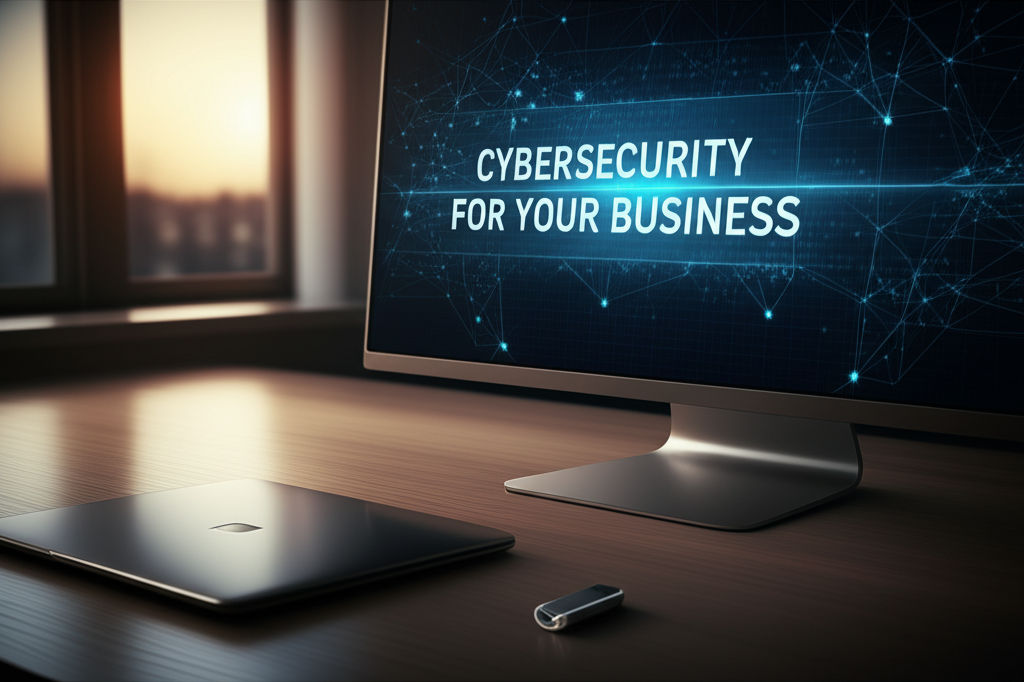
June 8, 2025
Cybersecurity for Your BusinessSafeguard your business success! Cybersecurity is essential. Protect your company from evolving threats, financial losses, and reputational damage.
Emily Willis

June 8, 2025
Talent Acquisition: Find the Best PeopleMaster strategic talent acquisition. Go beyond recruitment to identify, attract, & secure top talent that drives innovation & future organizational success.
Emily Willis
Economy
View AllUnlock the power of Human Capital! Discover why it's the vital asset for the future of work, driving innovation & competitive advantage. Learn key strategies.
Read MoreIn today's rapidly changing economic landscape, innovation and resilience are more important than ever. Innovation drives progress and competitiveness by creating new ideas and solutions to meet market needs. Resilience helps businesses withstand shocks and bounce back from setbacks by planning strategically and diversifying resources.
Read MoreUnlock historical wisdom and ancient philosophies for preventing depression. Learn timeless strategies for resilience and emotional balance in modern life.
Read MoreEntertainment
View All
August 5, 2024
Entertainment in Society: Social Impact, Cultural Influence, Economic ContributionsEntertainment is more than just a way to pass the time it has a significant impact on society, culture, and the economy. It promotes empathy, sparks conversations, and drives social change. It reflects and shapes cultural trends, while also preserving traditions. The entertainment industry generates jobs, contributes to economic growth, and drives technological innovation.
Emily Willis

August 5, 2024
Music Universal Language: Connecting and Inspiring Across CulturesMusic has the power to transcend language barriers and connect people on a deep emotional level. It serves as a bridge between cultures, fostering understanding and appreciation for diversity. The universality of rhythm and melody creates a sense of unity, while the diversity of musical styles allows for exploration and creativity.
Emily Willis

August 4, 2024
Profiles of Famous Artists Who Inspire the Younger Generationthe inspirational aspects of famous artists such as Vincent van Gogh, Frida Kahlo, Pablo Picasso, Banksy, Yayoi Kusama, Jean-Michel Basquiat, Georgia O'Keeffe, Andy Warhol, Kehinde Wiley, and Ai Weiwei. It highlights their perseverance, innovation, authenticity, social commentary, mental health advocacy, and representation, among other qualities, and how these aspects continue to inspire young artists to pursue their creative dreams.
Emily Willis
Health
View AllPreventive healthcare focuses on strategies to prevent disease and maintain well-being, rather than just treating illnesses after they arise. It helps identify risk factors early on, allowing for interventions that can prevent or delay the onset of chronic diseases.
Emily Willis
our minds are often overwhelmed with information and stimuli, leading to stress and anxiety. Mindfulness and meditation offer tools to cultivate inner peace and well-being. Mindfulness involves being present in the moment without judgment, while meditation involves focusing attention on an object or thought.
Emily Willis
preventive health measures in promoting longevity and enhancing quality of life. It discusses essential strategies such as maintaining a balanced diet, regular physical activity, adequate sleep, stress management, regular health screenings, immunizations, avoiding harmful substances, and prioritizing mental health.
Emily Willis
Trending 🔥
View All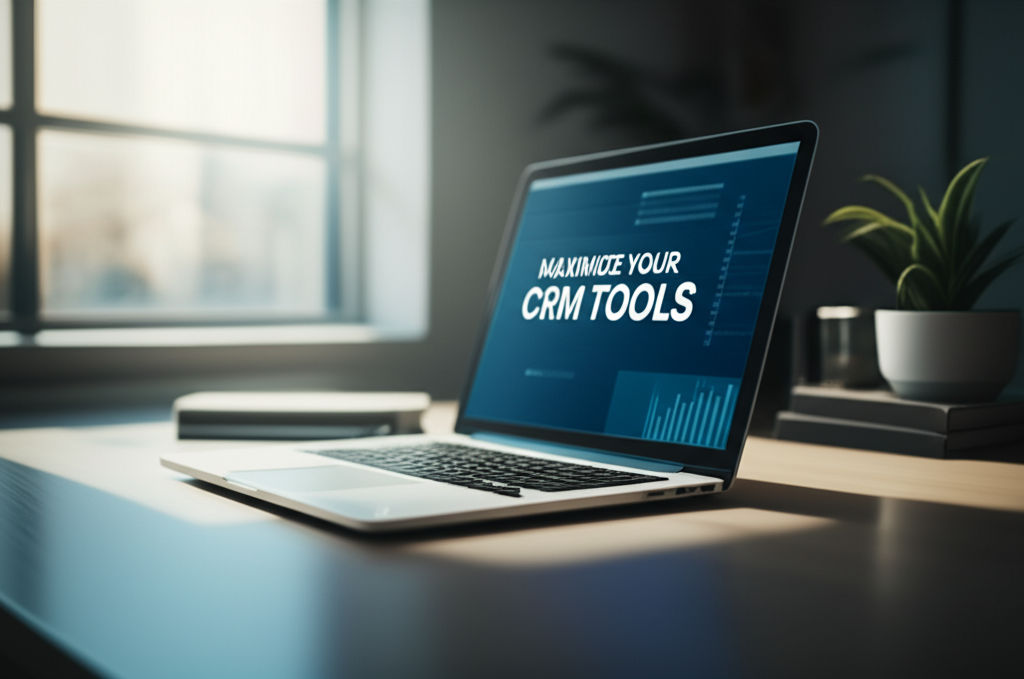
1
2
3
5
6
7
8
9
10
Sports
View AllAugust 5, 2024
Sportsmanship in the Spotlight: Cultivating Respect, Integrity, and Ethical Behavior
Read MoreTechnology
View All
August 5, 2024
How IoT is Changing the Way We Live and Work
The Internet of Things (IoT) is revolutionizing daily life and professional environments by connecting devices to the internet, allowing for communication, data collection, and autonomous task performance. IoT is transforming homes, workplaces, healthcare, and transportation by enhancing convenience, efficiency, and safety.
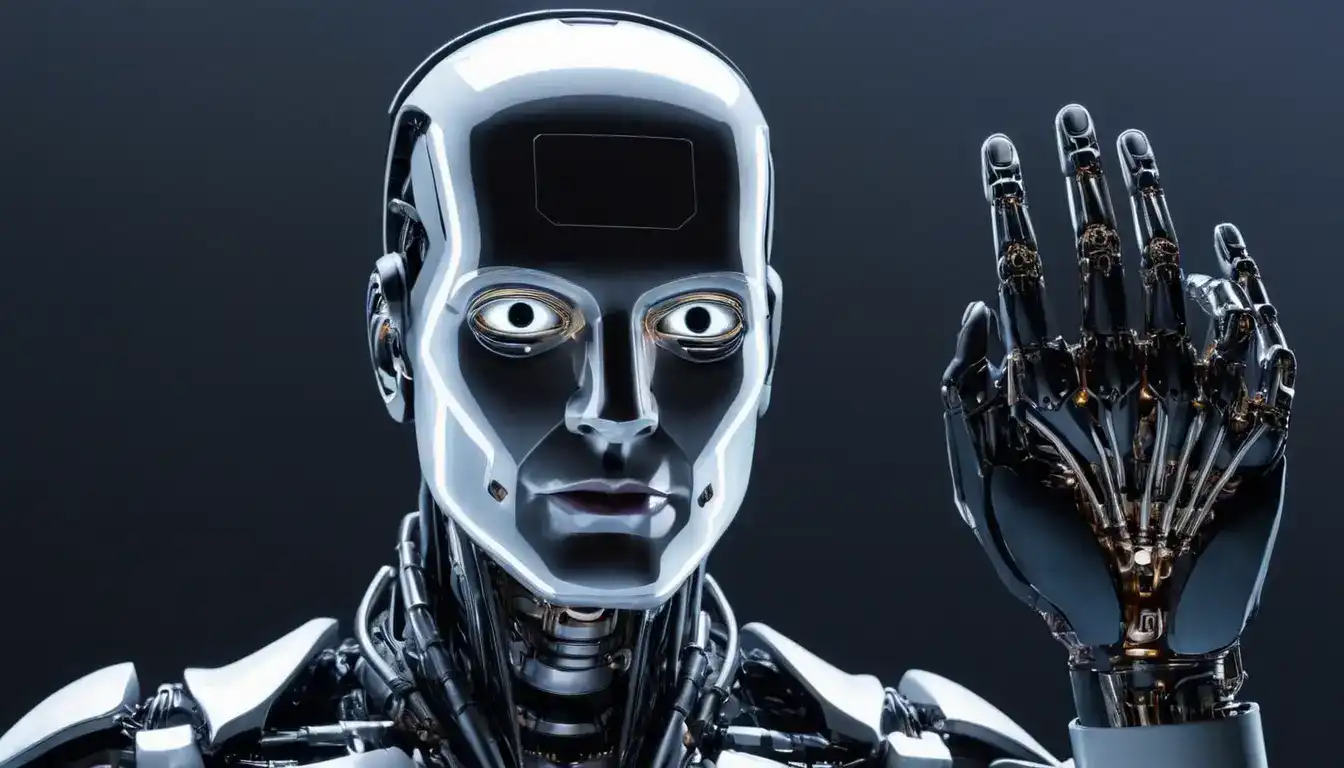
August 5, 2024
The Impact of AI on the Future of Work and Education
AI is rapidly advancing and reshaping industries, economies, and societies, especially in the areas of employment and education. In the workplace, AI is changing roles through automation and creating new job opportunities. The future of work will most likely involve collaboration between humans and AI, requiring workers to develop new skills and engage in lifelong learning.
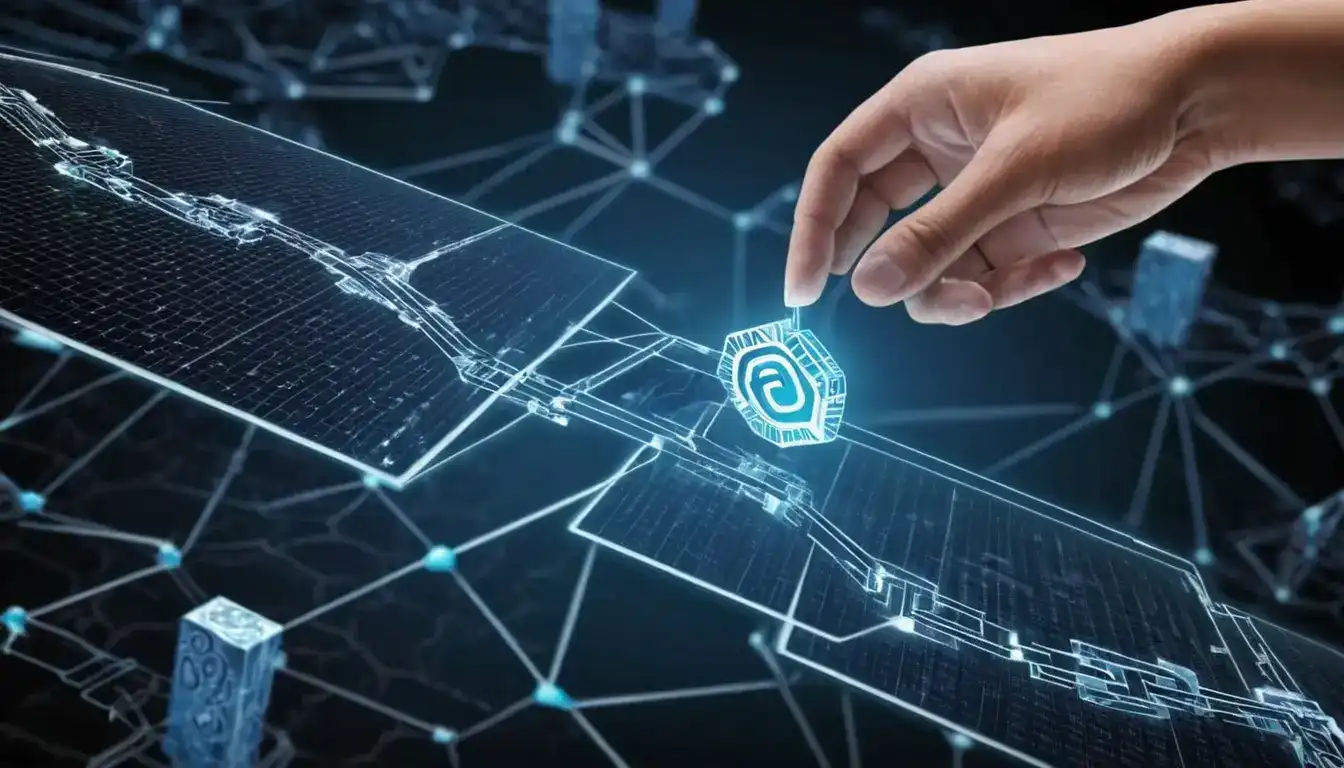
August 4, 2024
Get to know Blockchain Technology and its Potential in the Future
Blockchain technology, initially known for its association with Bitcoin, has evolved into a versatile tool with applications beyond cryptocurrency. It is a decentralized digital ledger that ensures secure, transparent, and tamper-resistant transactions. Key features include decentralization, security, transparency, and immutability. Current applications include cryptocurrencies, supply chain management, smart contracts, digital identity verification, healthcare, and voting systems.
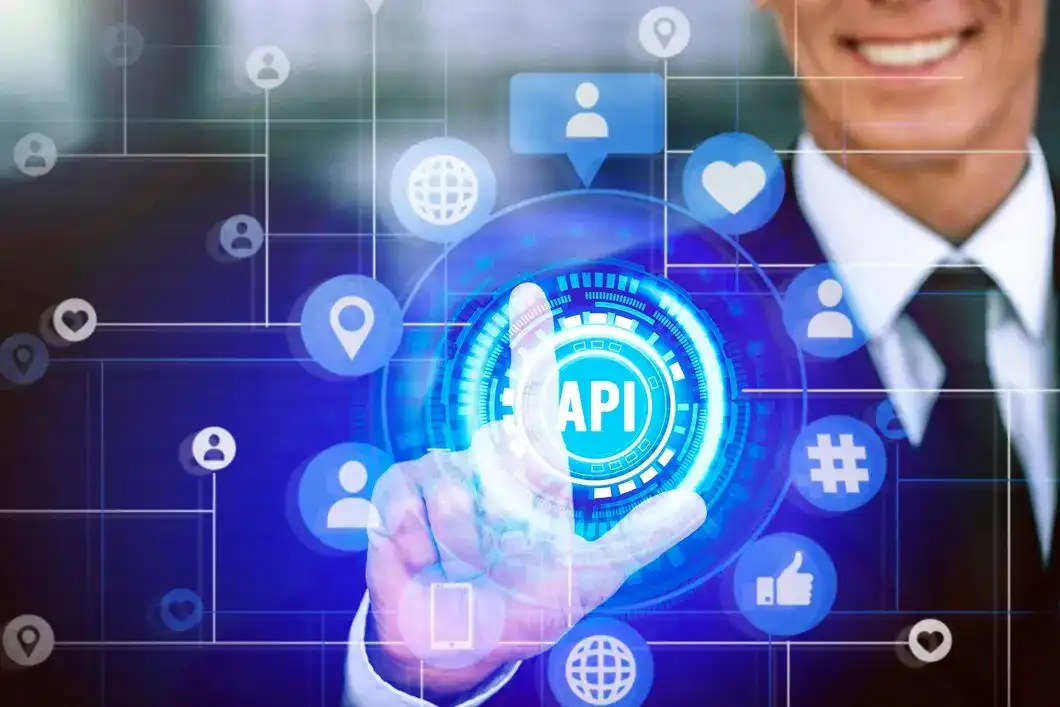
August 5, 2024
What is Blockchain and How does it Work?
Blockchain technology is a decentralized digital ledger that records transactions securely and transparently across multiple computers. Key concepts include decentralization, cryptographic security, and consensus mechanisms. Transactions are verified, grouped into blocks, and added to the blockchain through a consensus process.

